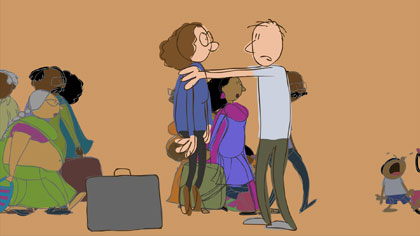Well the definition of e-lit is quite determined in this sentence. - However in order to get used to this saavy app (hypothesis platform) I'm going to descrive with my own words what I got from this definition-
Apparently e-lit has to do with the literary aspects and connections made between several interactions of liteature and technology (for what I get, standard books may also apply here) where sometimes it may ne regaldless of human intervention.
Also, I think this has to do with the "computing" devices, within mechanisms and systems that may be also the way we as humans construct reallity and other things though language and literature. This reminds me of some Foucault's theory about how a single word may be considered as a discoursive device in a complex mechanism interacting with several systems in a society o so...
What's really interesting is that the human intervention may not be required after all to consider the creation and acknowledgment of a literary work.
 To me the real hero of the story is not Gilgamesh but Inkidu. Gilgamesh full of human vices despite being a demigod. But Inkidu was the reason why Gilgamesh started to live. Gilgamesh would have being nothing without his partner, he would not have suffer in like without Inkidu's death, and would have not turn his life around either. This is why Inkidu is the hero.
CC BY-NC-ND
To me the real hero of the story is not Gilgamesh but Inkidu. Gilgamesh full of human vices despite being a demigod. But Inkidu was the reason why Gilgamesh started to live. Gilgamesh would have being nothing without his partner, he would not have suffer in like without Inkidu's death, and would have not turn his life around either. This is why Inkidu is the hero.
CC BY-NC-ND  At the end of the day, the only hero in the story was Nina herself. Rama was a complete self absorbed jerk and Sita was completely submissive and did not think of her even once. While Nina went through modern similar faces of rejection and self worth, she came to terms with herself, and accepted the fact that her ex boyfriend was not worth her pain and that she had to move on in life.
CC BY-NC-ND
At the end of the day, the only hero in the story was Nina herself. Rama was a complete self absorbed jerk and Sita was completely submissive and did not think of her even once. While Nina went through modern similar faces of rejection and self worth, she came to terms with herself, and accepted the fact that her ex boyfriend was not worth her pain and that she had to move on in life.
CC BY-NC-ND